Planning Committee
Hesham Elsharkawy, MD, MBA, MSc, FASA; Meeting Chair
Magdalena Anitescu, MD, PhD
Hance Clarke, MD, PhD
Edward R. Mariano, MD, MAS
Samer Narouze, MD, PhD; ex-officio, ASRA president
Faculty
Magdalena Anitescu, MD, PhD; University of Chicago Medicine, Chicago, IL
Karen Boretsky, MD; Boston Children’s Hospital, Boston, MA
Chad Brummett, MD; University of Michigan School of
Medicine, Ann Arbor, MI
Asokumar Buvanendran, MD; Rush University Medical Center, Chicago, IL
David Clark, MD, PhD; Stanford University, Palo Alto, CA
Hance Clarke, MD, PhD; Toronto
General Hospital and University Health Network, Toronto, ON, Canada
Steve Coppens, MD; University Hospitals Leuven, Belgium
Beth Darnall, PhD; Stanford University, Palo Alto, CA
Jill Edmondson, BA, MA, LLB, LLM, LLM; Toronto,
ON, Canada
David Edwards, MD, PhD; Vanderbilt University Medical Center, Franklin, TN
Nabil Elkassabany, MD, MSCE; University of Pennsylvania, Philadelphia, PA
Hesham Elsharkawy, MD, MBA, MSc, FASA; MetroHealth and Case Western University, Westlake, OH
Padma Gulur, MD; Duke University Medical Center, Durham, NC
Marie Hanna, MD, MEHP; Johns Hopkins, Baltimore, MD
T. Kyle Harrison, MD; Stanford
University and VA Palo Alto Health Care System, Palo Alto, CA
Stefan Hofer, MD, PhD; University Health Network/ University of Toronto, ON, Canada
Brian Ilfeld, MD, MS; University of California, San Diego,
CA
Heather Jackson, MSN, APRN-BC; Vanderbilt University Medical Center, Nashville, TN
Salima Ladak, BScN, MN, PhD; Toronto General Hospital, Toronto, ON, Canada
Sean Mackey, MD, PhD; Stanford School of Medicine, Palo Alto, CA
Edward Mariano, MD, MAS; Stanford University and Veterans Affairs Palo Alto Health System, Palo Alto, CA
Samer Narouze, MD, PhD; Western Reserve Hospital, Cuyahoga
Falls, OH
Kristin Schreiber, MD, PhD; Brigham & Women’s Hospital and Harvard Medical, Boston, MA
Eric Schwenk, MD; Sidney Kimmel Medical College at Thomas Jefferson University, Haddonfield, NJ
Shalini Shah, MD, MBA; University of California Irvine Health, Irvine, CA
Laura Simons, PhD; Stanford University School of Medicine, Palo Alto, CA
Maxwell Slepian, PhD; Toronto General
Hospital, Toronto, ON, Canada
Traci Speed, MD, PhD; Johns Hopkins, Baltimore, MD
Reda Tolba, MD; Cleveland Clinic Abu Dhabi, United Arab Emirates
Mark Wallace, MD; University of
California San Diego, CA


Karen Boretsky, MD, is trained in pediatric anesthesia, critical care, and regional anesthesia. She practiced pediatric and adult anesthesia for many years. In 2012, she became the director of the regional anesthesia program at Boston Children’s Hospital. Her research interests include evaluating the role of regional anesthesia in managing pain and recovery in children. She has authored articles on novel regional anesthesia techniques and presents nationally and internationally. She is passionate to find ways to minimize pain and improve safety using regional anesthesia in children.
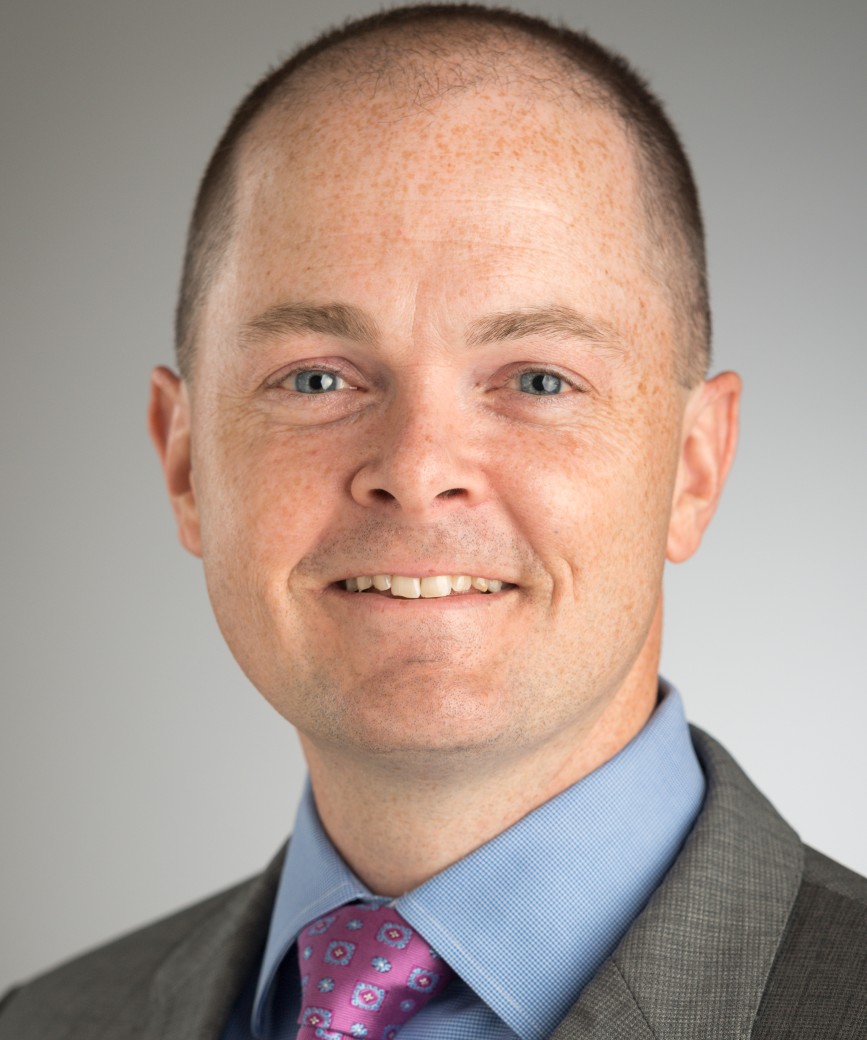
Chad Brummett, MD, is a professor at the University of Michigan where he serves as the senior associate chair for research. He has more than 200 publications, including articles in top journals such as JAMA, JAMA Surgery, Anesthesiology, and Annals of Surgery. He is the co-director of the Michigan Opioid Prescribing Engagement Network (Michigan OPEN), which aims to apply a preventative approach to the opioid epidemic in the US through appropriate prescribing after surgery, dentistry and emergency medicine. In addition, his research interests include predictors of acute and chronic post-surgical pain and failure to derive benefit for interventions for interventions and surgeries primarily performed to treat pain. In particular, Dr. Brummett is interested in the impact of a fibromyalgia-like or centralized pain phenotype on analgesic outcomes. He is the Co-PI of four major NIH grants (two NIH RO1s, a P50, and a UM1) studying these concepts, and also receives funding from the Michigan Department of Health and Human Services, SAMHSA and the CDC.
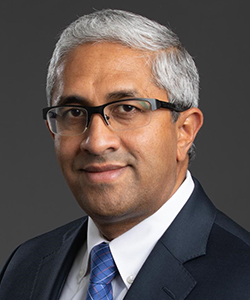
Asokumar Buvanendran, MD, is an anesthesiologist specializing in pain medicine, and his academic activities are divided between research, teaching, and clinical duties in the Rush University Department of Anesthesia in Chicago, IL, and national advocacy for the advancement of pain care. He brings a unique perspective of a very busy clinical practice of acute and chronic interventional pain medicine with research. He is involved in various clinical and basic research in the field of acute and chronic pain. At leisure time, he enjoys playing tennis.

David Clark, MD, PhD, is a professor of anesthesiology at Stanford University where he also serves as the vice-chair for research. He has a long-standing interest in understanding the factors affecting the persistence of pain including immunological, genetic and environmental factors. He has a basic science laboratory dedicated to these questions. In addition, Dr. Clark is involved in clinical trials evaluating treatments for chronic back pain and pain in veterans suffering from war-related illnesses.

Hance Clarke, MD, PhD, is the director of pain services and the pain research unit at the Toronto General Hospital (TGH). He is the Knowledge Translation Chair for the University of Toronto Centre For the Study of Pain and an associate professor in the Department of Anesthesiology and Pain Medicine at the University of Toronto. As a clinician-scientist, Dr. Clarke has played a leading role in educating the public about pain control, alternatives to opioids, and the need for further studies on the beneficial and adverse effects of cannabis. He is a champion of evidence-based solutions for the opioid crisis and an advocate for a national pain and addictions strategy. He has authored over 100 peer-reviewed publications and has been invited to speak on pain control, cannabis, and the opioid crisis to the House of Commons in Ottawa, Canada, and elsewhere around the world.
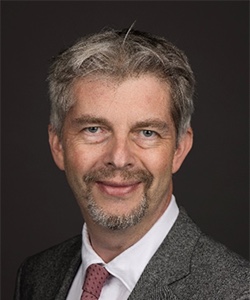
Steve Coppens, MD, obtained his medical degree at the Catholic University of Leuven in Belgium in 1996. He completed his residency in anesthesiology in 2001 at the University Hospitals of Leuven. He worked from 2001 until 2008 in private practice and developed his skills for regional anesthesia. From 2008 up to 2012 he worked in a level one trauma center in the Netherlands, where his main focus was on developing locoregional standards and enhancing ultrasound skills. He was appointed member of staff in 2013 at the department of anesthesiology of the University Hospitals in Leuven, Belgium. He was asked to focus clinically on regional anesthesia and to focus on training of residents and fellows. He developed a teaching program for residents in regional anesthesia. Since 2013 he has been clinical director of regional anesthesia and was appointed associate head of clinic. He implemented a newly developed locoregional learning program in Leuven and was instrumental in developing the regional anesthesia fellowship program.

Beth Darnall, PhD, is associate professor at Stanford University School of Medicine, Department of Anesthesiology, Perioperative, and Pain Medicine. She directs the Stanford Pain Relief Innovations Lab and investigates brief behavioral treatments for acute and chronic pain. She is a scientific member of the NIH Interagency Pain Research Coordinating Committee and the CDC Opioid Workgroup, and serves on the Board of Directors of the American Academy of Pain Medicine. Dr. Darnall has twice briefed the U.S. Congress on pain and opioids and has authored five books. In 2018 she spoke on the psychology of pain relief at the World Economic Forum in Davos, Switzerland.

Jill Edmondson, BA, MA, LLB, LLM, LLM, and an Arbitration certificate; is the author of four Sasha Jackson Mystery novels, plus various articles on a wide array of topics - from cancer to dating to writing. In her spare time, Jill pursues a number of creative pursuits, including glass fusing, resin work, and stand-up comedy.
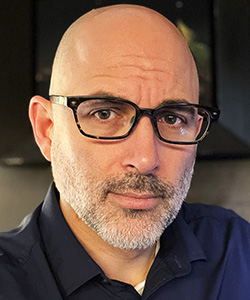
David A. Edwards, MD PhD, is the chief of the division of pain medicine and director of the chronic and transitional pain services at Vanderbilt. He is a member of Vanderbilt’s Integrated Services for Treatment of Addiction (VISTA) program where he cares for patients with co-occurring pain and opioid use disorder, specializing in managing complex care for pain and addiction around the time of surgery. He teaches a course on Pain, Policy, and Addiction at Vanderbilt Medical School where students learn to impact policy to benefit their patients.
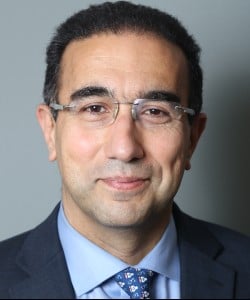
Nabil Elkassabany, MD, MSCE, is an associate professor in the department of anesthesiology and critical care at the Perelman School of Medicine, University of Pennsylvania in Philadelphia. He is the director of the sections of Regional and Orthopedic Anesthesiology and he is also the director of the regional anesthesiology and acute pain medicine fellowship. His research interest focuses on improving patients’ outcomes after regional anesthesia. He currently chairs the industry relation and communication committees, and he is a member of the board of directors of ASRA.
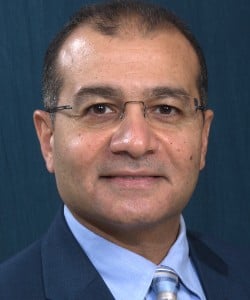
Hesham Elsharkawy, MD, MBA, MSc, FASA, is a staff member at MetroHealth and associate professor at Case Western Reserve University in Cleveland, OH. Dr. Elsharkawy’s research focus has been on development of new technologies, new pain procedures, and the transition from acute to chronic pain. This interest led him to establish the Persistent Postoperative Pain Special Interest Group. He has experience in research, has contributed to the field of regional anesthesia, and has been invited to many lectures and workshops, in national and international conferences, and on numerous grand rounds. Dr. Elksharkawy is also actively involved in multiple research projects and multicenter studies and has received multiple grants to support research projects. The core of his educational activities is teaching residents and fellows in different clinical settings, as well as during formal lectures, journal clubs, simulation sessions, workshops, and problem-based learning discussions. He earned an MBA from Cleveland State University, which helps him to lead many departmental projects.

Padma Gulur, MD, is recognized for her work in acute and chronic pain management. Her research and practice focuses on the safe delivery of pain management services for high risk populations, including opioid tolerant and pediatric patients. Dr. Gulur is known for her development of pain assessment tools and her investigation of risk factors and risk reduction methodologies, utilized to improve patient outcomes. The goal of Dr. Gulur’s practice and research is to improve the quality of life for her patients, especially for patients who are at high risk.
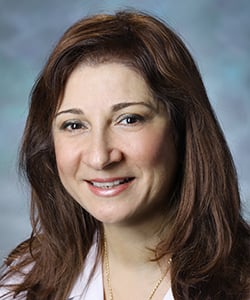
Marie Hanna, MD, MEHP, is an associate professor of anesthesiology and division chief of RAPM at Johns Hopkins Hospital. She initiated an innovative perioperative, personalized and transitional pain program PPP for chronic opioid users that adds value to patient care by improving perioperative pain control and reducing and weaning opioid. Dr. Hanna received multiple awards and participated as a speaker at multiple national and international conferences. She is a Co-PI in an RO1/ CDC grant to promote her work in the PPP. Dr Hanna’s plan to disseminate the idea of the PPP to many institutions.

T. Kyle Harrison, MD, is a clinical professor (affiliated- PAVA) of anesthesiology, perioperative and pain medicine at Stanford University and a staff physician at the VA Palo Alto. He earned his MD and did his residency training in anesthesiology at Stanford University. He completed a medical education and simulation fellowship at Stanford and then obtained additional training in addiction medicine at both Stanford and the VA Palo Alto. He is interested in the intersection of pain and addiction. He attends on both the acute pain service as well as the addiction medicine clinic at the VA Palo Alto. His academic interest include addiction, pain, peri operative management of buprenorphine, conversion of acute to chronic pain, and medical simulation. His email is [email protected] and his twitter handle is @KyleHarrisonMD

Stefan Hofer, MD, PhD, FRCS(C); obtained his medical degree from the University of Amsterdam in 1992. He then completed his PhD in the Department of Surgical Research, Academic Medical Center, Amsterdam. He obtained his board certification in plastic surgery from the Netherlands in 2000 and became the first plastic surgeon to be awarded the highly prestigious Dutch Cancer Society clinical fellowship, which funded his one-year Microsurgery Research fellowship at the Bernard O’Brien Institute of Microsurgery at the University of Melbourne in Australia. Dr. Hofer was an associate professor in the department of plastic and reconstructive surgery, Erasmus Medical Center, Rotterdam and the head of plastic and reconstructive surgical oncology from 2001 to 2007.
Dr. Hofer has been serving as the division head of plastic surgery at University Health Network and Mount Sinai Health System since 2007. He holds the Wharton Chair in Reconstructive Surgery and was the recipient of the Munk Reconstructive Surgery Innovation Fund to develop the Augmented Reality in Surgery Lab in collaboration with TECHNA at UHN. He is the immediate previous Editor-in-Chief of the Journal of Plastic, Reconstructive and Aesthetic Surgery (JPRAS).
Dr. Hofer is internationally recognized for his outstanding contributions in the areas of clinical service, education, and research. His clinical practice is focused on oncologic reconstructive (micro)surgery with an emphasis on breast reconstruction, sarcoma and head & neck reconstruction.

Brian Ilfeld, MD, MS, completed medical school and his residency at the University of California San Francisco and did a regional fellowship as well as earn his master's of science degree in clinical investigation at the University of Florida in Gainesville. Since 2006, his focus has been in clinical research at the University of California San Diego.
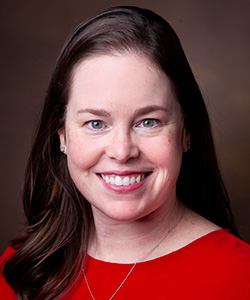
Heather J. Jackson PhD, APRN, FNP-BC, NEA-BC, is a pain specialist nurse practitioner at the Vanderbilt-Ingram Cancer where she also serves as the administrative director of advanced practice and instructor for the Vanderbilt School of Nursing. Dr. Jackson’s research interests include the use of acupuncture to treat pain and relieve symptoms of withdrawal in the adult, pediatric, and neonatal populations.
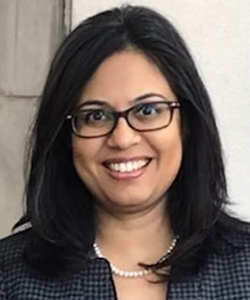
Salima Ladak, BScN, MN, PhD, is a founding member of the transitional pain service. She envisioned the Nurse Practitioner role as part of this inter-professional team. She is also the quality lead for the department of anesthesia pain program. Her clinical practice spans management of acute and persistent complex pain conditions, as well as pain and opioid use disorder. She has been nationally and internationally acknowledged for her clinical and leadership skills. Her leadership and clinical expertise has been leveraged to develop pain programs internationally. She has been a panel member of clinical practice guidelines and has a keen interest in areas of research. These include outcomes of pain and function, impact of pain on health related quality of life, as well as knowledge of pain among health professionals. She provides leadership in the area of nursing professional capacity building programs, trainee education and mentorship. Dr. Ladak is cross-appointed to the University of Toronto Lawrence S. Bloomberg Faculty of Nursing.
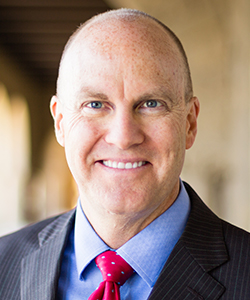
Sean Mackey, MD, PhD, is chief of the division of pain medicine and Redlich professor of anesthesiology, neurosciences and neurology at Stanford University. He is the Immediate Past President of the American Academy of Pain Medicine. Dr. Mackey received his BSE and MSE in bioengineering from University of Pennsylvania and his PhD in electrical and computer engineering as well as MD from University of Arizona. Dr. Mackey is author of over 200 journal articles, book chapters, abstracts, and popular press pieces in addition to numerous national and international lectures.
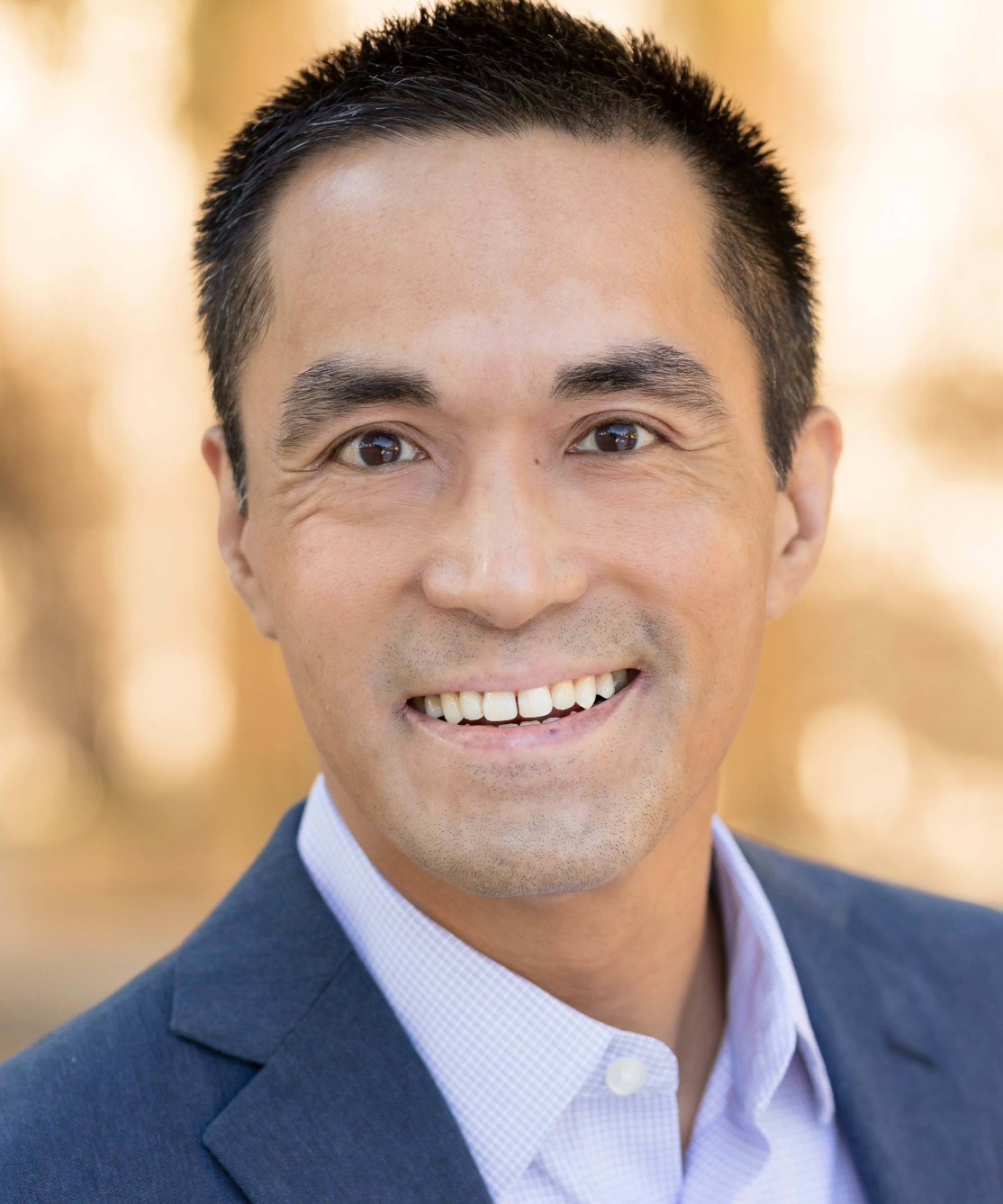
Edward R. Mariano, MD, MAS, is a professor at Stanford University School of Medicine and chief of the anesthesiology and perioperative care service at the Veterans Affairs Palo Alto Health Care System. His research interests include the development of techniques and patient care pathways to improve postoperative pain control, patient safety, and other surgical outcomes. He has published more than 170 peer-reviewed articles. He is a recipient of the Veteran Health Administration’s John D. Chase Award for Physician Executives Excellence and has led key national healthcare initiatives related to pain medicine.
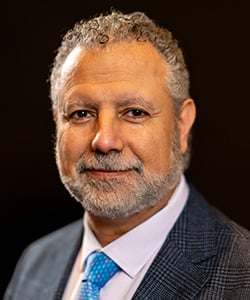
Samer Narouze, MD, PhD, is a professor of anesthesiology and surgery at NEOMED and Ohio University. He is board certified in anesthesiology, pain medicine, headache medicine, and interventional pain management. He is the chairman of the Center for Pain Medicine at Western Reserve Hospital in Cuyahoga Falls, OH. Dr. Narouze is the president-elect of ASRA. He recently founded the American Interventional Headache Society and serves on many committees for national and international headache and pain organizations. He has published about 200 research papers, review articles, book chapters, and abstracts. His areas of interest are pain, headache, cannabinoids, diversity and inclusion, wellness, obesity, and ultrasound.

Kristin Schreiber, MD, PhD, is a regional anesthesiologist and translational pain neuroscientist. Her research focuses on the development of chronic pain after surgical injury, particularly the mechanisms by which individual differences in psychosocial processing and nociceptive sensitivity lead to enhanced pain propensity and longevity in some people, but not others. Using a variety of methods, (quantitative sensory testing, psychosocial testing, fMRI, digital pills), she is investigating how non-opioid analgesic techniques (regional anesthesia, yoga-based exercise, placebo, distraction, music, CBT) may modulate pain.

Eric Schwenk, MD, is a fellowship-trained regional anesthesiologist and acute pain physician at Jefferson in Philadelphia, PA. Dr .Schwenk is a member of the research committee and guidelines/regulatory advocacy committee in ASRA. His academic interests are ketamine for refractory headache, perioperative ketamine and adverse effects, perioperative management of total joint arthroplasty, and social media in medicine.

Shalini Shah, MD, MBA, is an associate professor and vice-chair for the department of anesthesiology & perioperative care and enterprise director of pain services for University of California Irvine Health. Dr. Shah completed her residency in anesthesiology from Cornell University and a combined fellowship in adult and pediatric chronic pain at Harvard Medical School. She has been featured in Time Magazine, The Doctors, NBC Nightly News, Business Insider and is a frequent guest on NPR on the topic of safe pain care options. Dr. Shah currently serves as the Founding Chair, Committee of Pain Medicine at the California Society of Anesthesiologists (CSA) and is President-Elect, CALSIPP. She completed her MBA from UCLA Anderson School of Management with a certificate of distinction in finance and entrepreneurship Dr. Shah is strongly committed to pain advocacy and healthcare regulatory reform both in the state of California and nationally to improve healthcare experiences for patients.
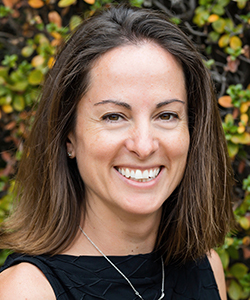
Laura Simons, PhD, is an associate professor in the department of anesthesiology, perioperative, and pain medicine at Stanford University School of Medicine. She directs the Stanford Biobehavioral Pediatric Pain (BPP) Lab and is clinical psychologist who evaluates and treats children and adolescents who present with chronic pain in Pediatric Pain Management Clinc at Stanford Children's Health. Dr. Simons' research spans assessment scale development, treatment intervention, nd experimental and neuroimaging methods.
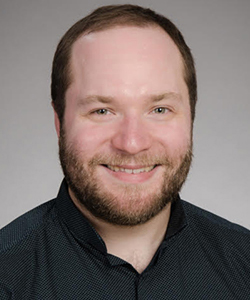
Maxwell Slepian, PhD, is a registered clinical and health psychologist. He works as a staff psychologist in the Transitional Pain Service (TPS) at Toronto General Hospital and as a Research Associate with Dr. Joel Katz at York University. Current projects include leading the implementation of a remote screening and stepped care psychological intervention program for TPS patients and exploration of the role of pain resilience in surgical settings.
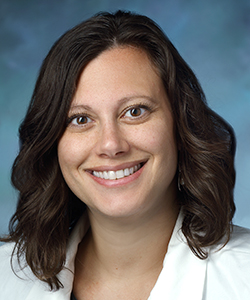
Traci Speed, MD, PhD, is an assistant professor of psychiatry and behavioral sciences at Johns Hopkins University School of Medicine. Dr. Speed is a clinical expert on postoperative pain, chronic pain, depression, addiction, and sleep disorders. As chief psychiatrist of the Johns Hopkins Personalized Pain Program (PPP), her clinical research focuses on improving access and delivery of multidisciplinary pain care across diverse patient populations and reducing stigma of the role of psychiatry in pain management.
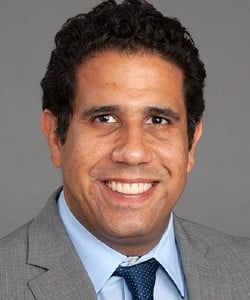
Reda Tolba, MD, is the chairman of the pain department at Cleveland Clinic Abu Dhabi, UAE. He is a clinical professor of anesthesiology at Cleveland Clinic Lerner College of Medicine in Cleveland, Ohio. He is currently serving as the founding chair of I-ASPN , the international division of American society for pain and neuroscience, member of the ASA Educational Track Subcommittee on Pain Medicine and the workshop director. He also serves on several committees for the American society of Regional Anesthesiology and Pain Medicine ASRA , North American Neuromodulation Society NANS .
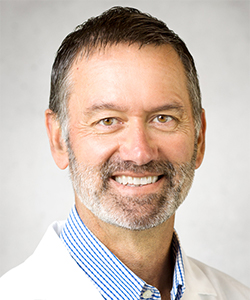
Mark Wallace, MD, received his MD from Creighton University School of Medicine in 1987. He completed an anesthesiology residency at the University of Maryland followed by an NIH training grant fellowship and a clinical pain fellowship in the department of anesthesiology, University of California San Diego (UCSD). He is currently a professor of anesthesiology and the chair, division of pain medicine in the department of anesthesiology, UCSD School of Medicine and Director, Division of Clinical Research in the UCSD Clinical and Translational Institute (CTRI). Dr. Wallace is the recipient of numerous awards including the Award for Excellence in Clinical Care, American Pain Society Center of Excellence Award, and the Leonard Tow Humanism in Medicine Award. Dr. Wallace has authored and co-authored more than 300 articles, abstracts, books, and book chapters concerning pain research and management, including research on the use of medical cannabis to treat pain. He has also authored numerous book chapters and review articles on medical cannabis to treat chronic pain. He has extensive experience with all phases of clinical trials.